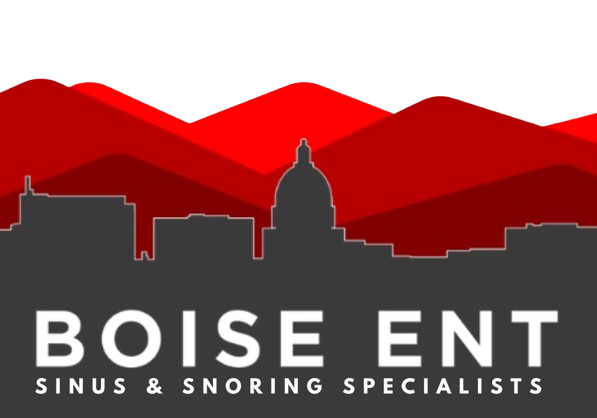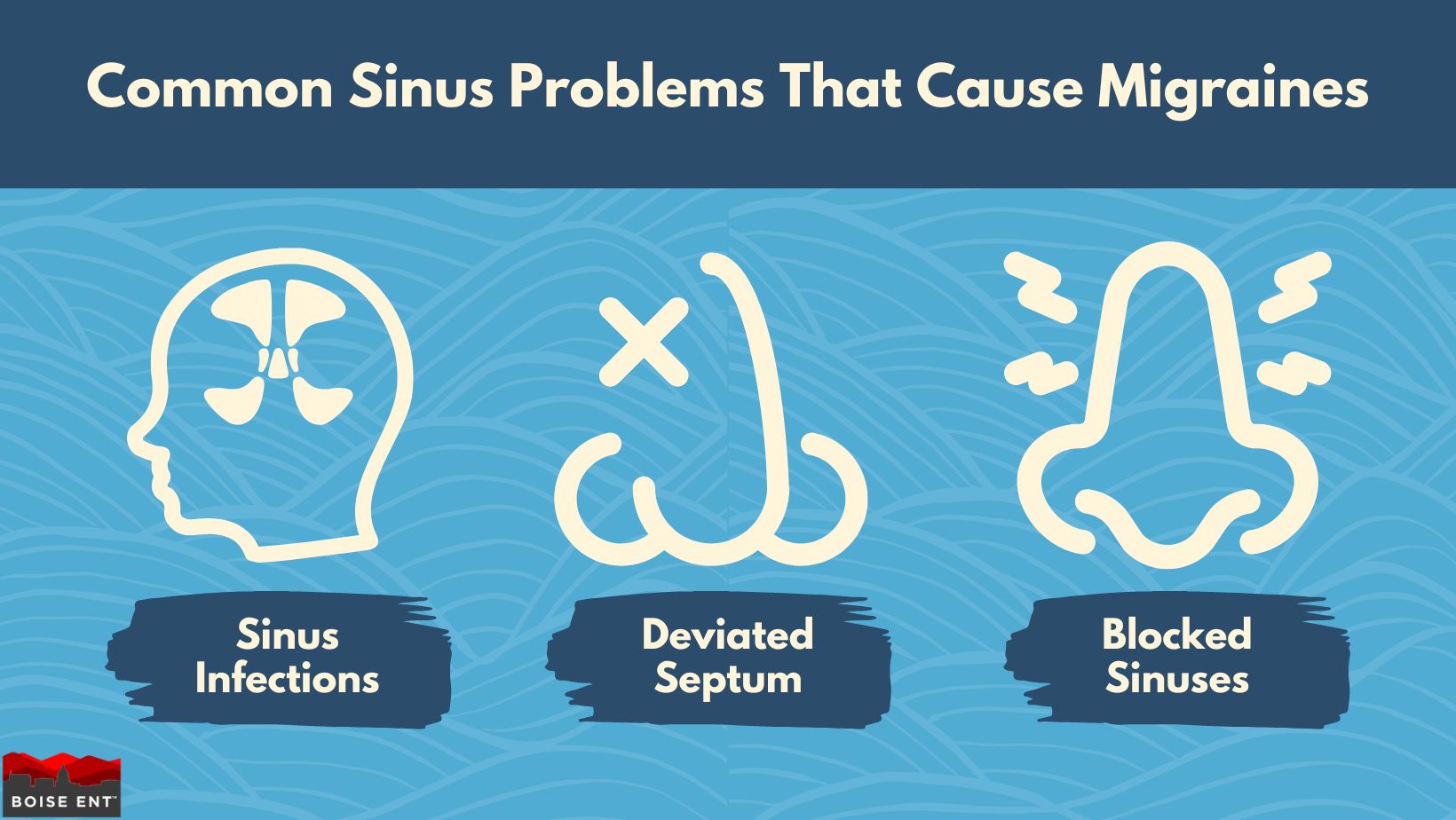We all know the misery of sinus pressure, a stuffy nose, or post-nasal drip. But…

Can A Deviated Septum Cause Headaches? Migraines Caused by Deviated Septums and Bone Spurs
TL;DR: Can a Deviated Septum Cause Headaches?
- A deviated septum can trigger headaches due to blocked sinuses or irritation from the septum touching nasal tissues.
- Treatment: Septoplasty surgery can relieve symptoms, including migraines.
- Bone Spurs: Neck/spine issues (common in older adults) can cause migraines. Treated with anti-inflammatory meds.
Conclusion: Treating a deviated septum or bone spurs may reduce or eliminate migraines.
What is a Migraine?
Experiencing significant pain and discomfort from a headache possibly accompanied by serious throbbing and constant pain on one or both sides of the head is known as a migraine. Someone experiencing a migraine may have a variety of neurological symptoms that last up to 72 hours. For many years, medical research believed a migraine resulted from the constriction and dilation of the blood vessel in a person’s head. Initially, medication was provided to treat the blood vessels. More recently, research shows migraines could be caused by a neurological disorder that may involve brain chemicals as well as nerve pathways. Research has shown that migraines run in families and environmental factors can also influence the occurrence of migraines.
 What are the symptoms of Migraines?
What are the symptoms of Migraines?
There is no specific test designed to determine if someone is experiencing a migraine. A diagnosis of a migraine is often done based on symptoms a person is experiencing. Some of the most common symptoms of migraines are:
- Intense pain that is pulsating or throbbing
- Extreme sensitivity to sound or light
- Nausea
- Vomiting
- Blurred vision
- Bright flashes affecting eyesight known as auras
Can a Deviated Septum Cause Headaches?
You might be wondering, ‘can a deviated septum cause a headache?’ Research has shown there is a connection between a person who has a deviated septum and experiencing migraine headache conditions. There are a number of reasons why it is believed a deviated septum can cause headaches.
- Numerous sinus infections – The mucus in the nasal cavity becomes blocked, causing an infection. When this happens, it could cause a migraine headache episode.
- The septum touching nasal tissue – In severely deviated septum cases the nasal bone can actually rub up against the delicate tissues of the sinuses causing pain along the sensory nerve that leads to the brain, ending up in a headache.
Diagnosing Deviated Septum
Research has shown that over 69 percent of the global population has some range of a deviated septum. It can be diagnosed when people have regular nosebleeds and congestion. Loud and constant snoring as well a regular sinus infections and runny nose. These are all signs of this condition.
Treating Deviated Septum
A surgical procedure known as septoplasty can be performed on people with a deviated septum. It is done on an outpatient basis. Once this is done, patients experience a significant improvement in their quality of life. This is often the case with people who suffer from migraine headaches.
 Bone Spurs and Migraines
Bone Spurs and Migraines
Studies of migraines have shown they can be associated with biomechanical imbalances within a person’s musclo-skeletal system. This is often the case with bone spurs in the neck and spine. It’s a condition that affects over 49 percent of people 60 and older.
Diagnosing Bone Spurs
A health care provider will perform a detailed neurological and spinal evaluation. Any possible spinal cord or spinal nerve compression will be noted. Electroconductive testing could be done to determine the seriousness. X-rays of the spine will be taken to determine the formation of bone spurs.
Treating Bone Spurs
Treatment of bone spurs usually involves decreasing the inflammation they cause. Anti-inflammatory medication has been successful. Local injections of Kenalog and others is often used. Migraines have often lessened or stopped once the inflammation caused by a bone spur is controlled.
Individuals who suffer migraines caused by having a deviated septum or bone spurs do have a variety of medical options available to them. In many cases, treating these conditions will bring relief from the pain caused by migraines. If you are dealing with deviated septum headaches or bone spur headaches
Dr Don J. Beasley, MD is a board-certified otolaryngologist and snoring specialist near you, who has been practicing ear, nose, and throat medicine for over 20 years. If you’re interested in getting an ENT consultation today, feel free to schedule an appointment online or call our office today at (208) 229-2368.
If you are having trouble with sleeping or snoring, we are also your go-to sleep specialist in Boise, contact us today for a consultation.

 Bone Spurs and Migraines
Bone Spurs and Migraines

